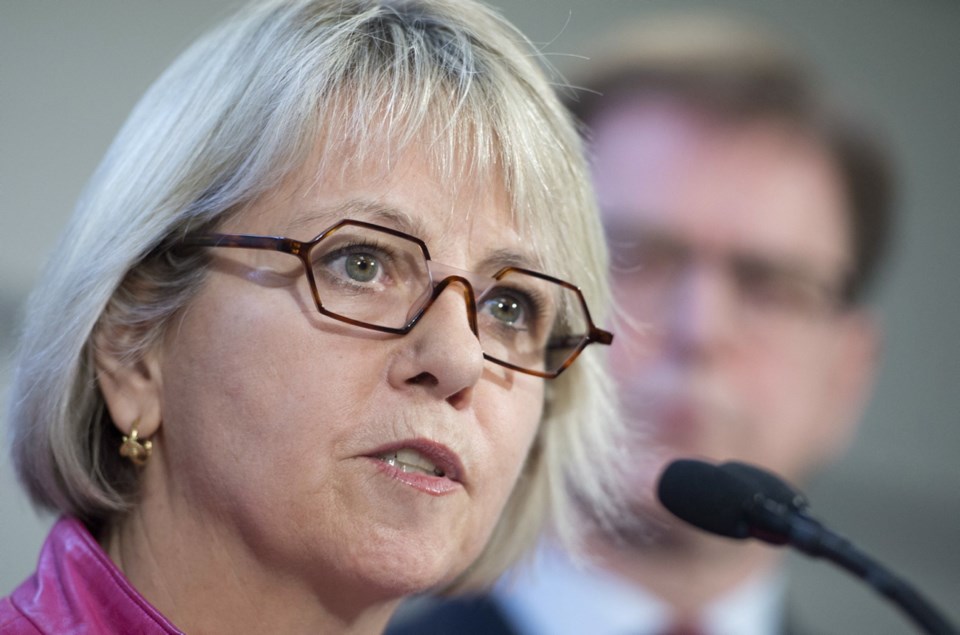British Columbia has had its first death as a result of COVID-19 — a male resident of a North Vancouver extended care home. It’s also the first death from the outbreak in Canada.
“We are deeply saddened to hear that one of the residents of the Lynn Valley care home who was infected with COVID-19 passed away last night,” said Dr. Bonnie Henry, the chief provincial health officer. “Our heartfelt condolences go out to his family and loved ones and also, of course, to the staff who provided him care and his home at the Lynn Valley care home.”
As of Monday, the outbreak of COVID-19 at the Lynn Valley Care Centre had affected two residents, including the one who died, and two health-care workers, one of them a newly announced case.
The man who died was in his 80s and had several underlying health conditions, putting him in a higher risk group. His symptoms were detected late Thursday or early Friday. The other resident who tested positive for COVID-19, a woman in her 70s, is in stable condition.
“It is very likely that both health-care workers and both residents that we know of now were infected from someone else within that setting, and the investigation is going on to determine exactly who and how that happened,” said Henry.
On Monday, Henry announced five new cases of novel coronavirus in B.C., for a total of 32.
There have been no reported cases on Vancouver Island.
“We have had people who have been close contacts and there have been returning travellers who’ve been monitored by public health and thankfully no one yet has tested positive on Vancouver Island” or in northern B.C., Henry said. “It’s not like we’re not looking for it in those other places,” she added.
The new cases announced Monday include:
• Another health-care worker at Lynn Valley Care Centre, a woman in her 40s who lives in the Fraser Health Authority area
• Two males from the Fraser Health Authority region, one a teenager and one in his 50s. Both are close contacts of the first health-care worker at Lynn Valley
• Two “imported cases” — a woman in her 50s who returned from travel in Iran and a male in his 30s who had been travelling in Italy. Both live within the Vancouver Coastal Health Authority region.
Only three cases have ended up in acute care in hospital: one at Vancouver General Hospital and two in the Fraser Health Authority, said Health Minister Adrian Dix.
“The acute-care pressure is not there yet, but we’re obviously preparing for that,” said Dix. “Also, we need to apply appropriate resources in the community and the situation in the Lynn Valley and others demonstrates the need to do that.”
Of the 32 positive tests for COVID-19 in B.C., all but one have been the result of “imported” cases from China, Iran or Italy or transmission within a household, Henry said. Two people who returned from a cruise also tested positive for the virus.
“The majority of cases have been linked to international travel,” said Dix.
Dix and Henry stressed the importance of hand washing and staying home if sick as first defences.
“Right now, we want everybody to stay home, if you’re sick,” said Henry. “Even if you have the sniffles, you have a bit of a cold, your children are feeling a little bit under the weather: keep them home from school, keep yourself home from work if you’re not feeling well. Even if you have no relationship to COVID-19, we want you to do that,” said Henry.
“And we want you to clean your hands regularly, we want you to cough into your sleeve. Those are important measures that all of us need to take right now.”
Health officials are not asking for all public gatherings to stop, she said. “But we are watching that,” said Henry. “It might happen if we get to a place where there are more cases popping up in the community that we can’t link. It’s a way of keeping sick people away from well people until we can find those links and break those chains.”
Most people who get sick from COVID-19 catch it from family members and friends they spend time with indoors, which is why health officials are focusing on gatherings where people share food, Henry said.
“Those are the types of settings where we have seen transmissions, and where we need to be most cautious right now.”
The province’s 811 nurse line typically handles about 1,100 to 1,200 calls a week, and that has doubled because of COVID-19, Dix said.
The service will be one of many to be bolstered as the response to novel coronavirus ramps up.
Asked about physical resources needed to fight the spread of the virus, Henry said “we do have a pandemic stockpile that we have started to use.”
A national process helps to ensure supplies are available for long-term care homes, community physicians and hospitals, said Henry.
There’s no calculation of the number of confirmed cases that would overwhelm the health-care system, because a large outbreak won’t happen across the province at once, Henry said. “There’s no magic number.”
There are provisions for delaying visits and admissions to hospitals for things such as elective surgeries, she said.



